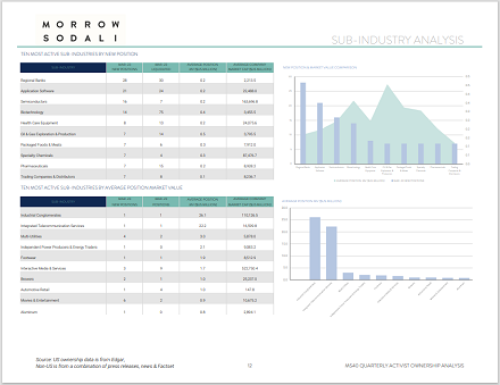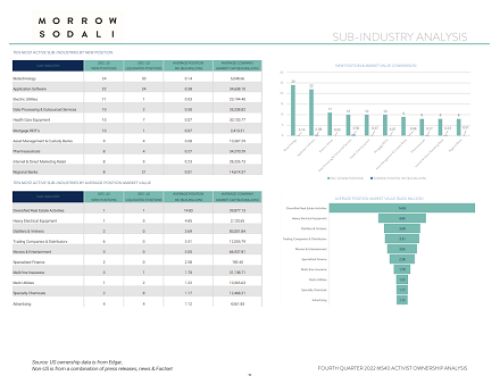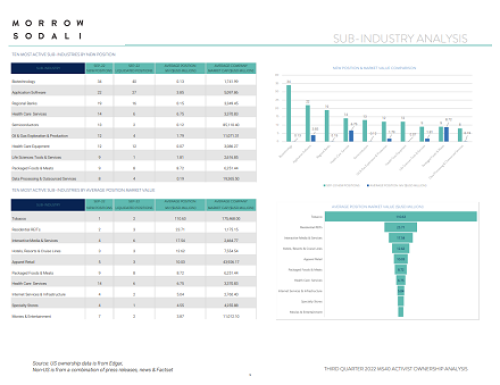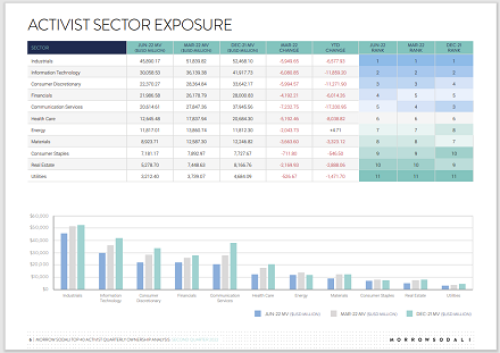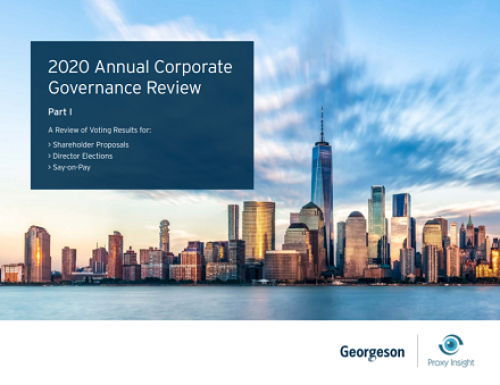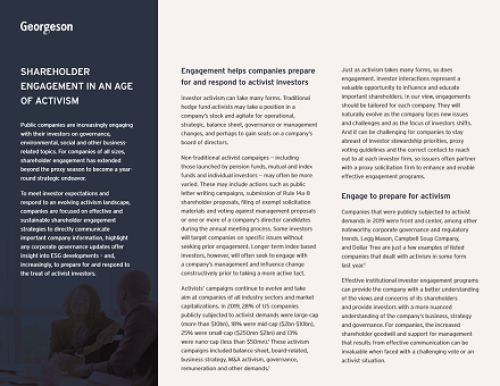Activist shareholders are casting their eyes beyond the boardroom to focus on the corner office, fueled by an increasing focus beyond simply financial performance to issues such as operations and governance.
Later this month, for example, Buffalo Wild Wings and Rent-A-Center face shareholder votes on proposals asking for the removal of their CEOs. In both cases, the boards oppose the proposals. Spokespeople for Buffalo Wild Wings and Rent-A-Center declined to comment.
Activists are targeting CEO changes because of ‘a perceived need to become much more operationally linked to their investments in order to drive change,’ Peter Michelsen, president of CamberView Partners, tells IR Magazine. Michelsen says the days of activists focusing primarily on financials have gone, with activism having evolved to focus on governance, leadership and operational issues. ‘Often the CEO sits at the center of those perceived needs for change,’ he says.
The enhanced focus and influence of activists is partly down to a change in the perception of activists among other shareholders, according to Steven Balet, managing director at FTI Consulting. ‘Over time it would seem that institutional investors have got more comfortable with CEO change and activists have therefore become more emboldened to target CEOs,’ Balet tells IR Magazine.
Indeed, the number of CEOs departing a company almost doubles within the first year of an activist engagement, according to research last year from FTI Consulting. In any one-year period, the average CEO turnover among 2,500 companies studied was 16.6 percent between 2011 and 2015, FTI Consulting found. When an activist got involved but did not obtain a board seat, CEO turnover rose to 28.4 percent. When the activist did obtain a board seat, 34.1 percent of CEOs left the company, according to the research.
The numbers become even more stark over a 24-month time period. FTI Consulting’s data suggests that more than half (55.1 percent) of CEOs leave a company within two years of an activist obtaining a board seat.
Perceptions and track records
Balet says the perception of activists has changed considerably over the last 15 years, as they have built varying reputations and track records for themselves and their firms. For some activists, that can be a double-edged sword, with companies digging for information about them to build a defense around.
‘Now we see companies making sure that their shareholders are aware of the track record of activists once they’ve been placed on the board of other companies,’ Balet says. This goes beyond financial performance to encapsulate a range of other issues – such as layoffs, accounting standards, safety issues and governance issues – that could convey a cultural mismatch between the activist’s and the company’s priorities.
It has become common practice for companies ahead of a proxy contest to brief their shareholders on these issues surrounding the activists they’re in conflict with – using investor presentations and shareholder releases as primary briefing tools. These methods are also used to discuss the track record of individual board nominees put forward by activists.
Michelsen says an activist’s track record is material information to help investors make a decision, but he cautions that communicating it ‘should never be an attack, it should be very fact-based.’
Balet agrees, saying that companies need to avoid personal attacks or emotive language. ‘Your other investors are going to have more in common with the activist than they are with you as a company, so you need to take the high road,’ he says.
Number of CEO exits almost doubles within the first year of activist engagement, according to research


